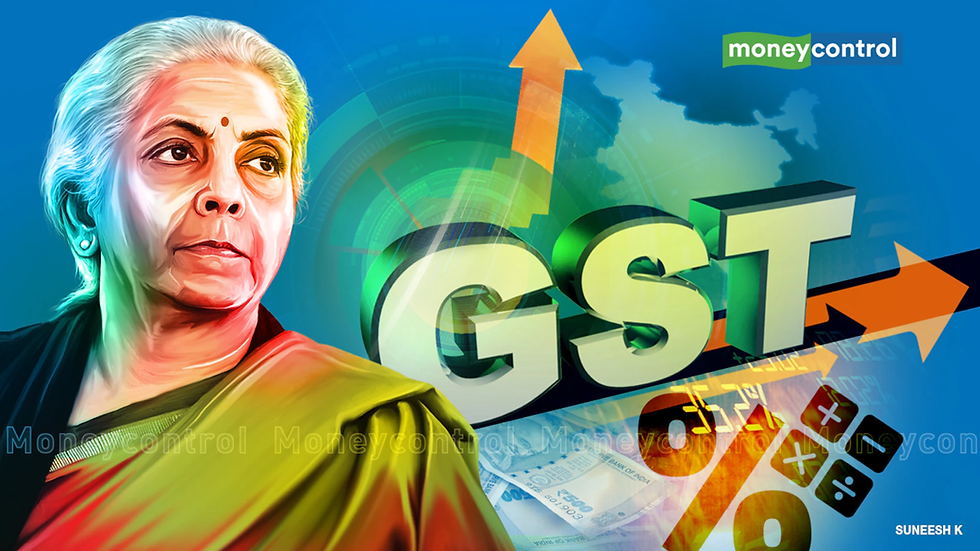Soros and Open Society: The Myth of Falsification
- Hindu College Gazette Web Team

- Aug 16, 2024
- 7 min read
Image Credits- insaut.com.br
George Soros, a prominent figure in global finance and philanthropy, has been deeply associated with his advocacy for open societies and liberal democracies. His worldview draws inspiration from the ideas of philosopher Karl Popper, particularly the concept of "Open Society." However, Soros's influence and activities have sparked controversy, especially regarding his investment strategies, political interventions, and critiques of various governments, including India. In this article, we delve into the myth of falsification surrounding Soros and the Open Society, exploring its origins, implications, and inherent flaws.
George Soros and His Inspiration
George Soros, a Hungarian-born investor and philanthropist, was profoundly influenced by Popper's ideas on open society and the limitations of totalitarian ideologies. Soros embraced the concept of reflexivity, which suggests that individual perceptions and beliefs can influence market dynamics and social phenomena, leading to feedback loops and self-reinforcing trends. Drawing from Popper's philosophy, Soros sought to apply critical thinking and reflexivity to his investment strategies and philanthropic endeavours.
Soros gained international attention in the early 1990s for his role in currency speculation, notably his bet against the British pound in the Black Wednesday crisis. Critics accused Soros of engaging in speculative activities that exacerbated financial instability and undermined national economies. However, Soros defended his actions as legitimate market operations aimed at correcting mispriced currencies and promoting market efficiency. Soros's currency speculation activities epitomised his reflexive approach to financial markets, where he recognized the interplay between subjective perceptions and market dynamics. While his interventions generated controversy and criticism from policymakers and market participants, Soros's success as an investor demonstrated the potential for reflexivity to inform investment strategies and navigate market uncertainties.
Karl Popper’s Influence
Karl Popper, a distinguished philosopher of science, articulated his vision of an open society in "The Open Society and Its Enemies." He argued that liberal democracies, characterised by respect for individual rights, rule of law, and free exchange of ideas, are conducive to social progress and lead to the establishment of conditions that help individuals flourish. Popper emphasised critical thinking, tolerance, and political pluralism as essential safeguards against totalitarian ideologies and authoritarian regimes. Popper's framework provided a philosophical foundation for Soros's advocacy for open societies. Soros recognized the inherent dynamism and adaptability of open societies in responding to social, political, and economic challenges. He embraced Popper's vision of democratic governance as a means of promoting individual freedoms, social justice, and inclusive development.
Open Society: Need and the flaw
The concept of the Open Society advocates for transparency, accountability, and inclusivity in governance, fostering dynamic exchange and social cohesion. In an open society, individuals enjoy the freedom to express opinions, challenge authority, and participate actively in shaping public policies and institutions. This openness encourages innovation, diversity, and resilience, facilitating the constructive resolution of conflicts and the advancement of collective interests.
Soros had recognized the imperative of nurturing open societies as a mechanism against tyranny, injustice, and social stagnation. He viewed open societies as laboratories of democracy, where experimentation, debate, and dissent drive progress and adaptation. Through his philanthropic endeavours, Soros sought to empower individuals and communities to assert their rights, participate in decision-making processes, and hold institutions accountable.
However, there have been many arguments put forward that have characterised the inherent flaw of “Open Society”. Mark Lilla has described the idea of an open society as an oxymoron, arguing that all societies are characterised by boundaries. Mark Royer notes that Popper does not address the question of how open society ought to be governed. Rajeev Bhargava argues that Popper had no theory of why “violence continues to be deployed in the defence of the most despicable and exploitative social orders as well as for their overthrow. Popper’s commitment to individualism, blinded him to the historical reality that “beliefs, desires, intentions, and actions are inescapably social.”
However , the biggest flaw in his thinking is based on the overtures that may happen even if an open liberal society has been established. Even more importantly, Popper had no clear answer to this fundamental question of how open societies were to use their power or how closed societies were to be defeated. Soros whole heartedly welcomed the collapse of the Soviet Union and pushed the West, ineffectually to economically aid its reconstruction. But it is not clear what his views were on the United States’ own efforts to undermine democracy, from Vietnam to the Middle East and Latin America.
Image credits- Pinterest
Impact of Karl Popper's Theory of Falsification on Soros
At the core of Popper's philosophy of science lies the principle of falsifiability, asserting that scientific theories must be testable and potentially refutable through empirical evidence. Popper argued that the validity of a scientific hypothesis hinges on its ability to withstand rigorous scrutiny and potential falsification. This epistemological framework underscores the importance of scepticism, empirical inquiry, and intellectual humility in advancing scientific knowledge.
Soros’, in his opinion, pieces have argued to demolish the “dogma” of communist and closed societies through falsification. The usage of the word “dogma” points to two critical elements of his thought: his fierce belief that ideas, more than economics, shape life, and his confidence in humanity’s capacity for progress. According to Soros, the dogmatic mode of thinking that characterised closed societies made it impossible for them to accommodate the changing vicissitudes of history. Instead, “as actual conditions change, ”people in closed societies were forced to abide by an atavistic ideology that was increasingly unpersuasive. When this dogma finally became too obviously disconnected from reality, Soros claimed, a revolution that overturned the closed society usually occurred. By contrast, open societies were dynamic and able to correct course whenever their dogmas strayed too far from reality.
Investment in Democratic Initiatives and Activities
Beyond his financial ventures, Soros has been actively involved in supporting democratic initiatives, civil society organisations, and human rights advocacy worldwide. Through his philanthropic foundation, the Open Society Foundations, Soros has provided funding and resources to promote democratic governance, social justice, and human rights activism in diverse contexts. His support for marginalised communities, independent media, and grassroots movements reflects his commitment to advancing the principles of open society.
Soros's philanthropic investments have catalysed social change and empowered marginalised communities to assert their rights and demand accountability from governments and institutions. His advocacy for democratic governance and human rights has resonated with activists, scholars, and policymakers seeking to promote inclusive development and social justice. Even as the ideological war explodes across the globe, it is important to understand that the real story is less than super-powered.
Economists Guadalupe Correa-Cabrera, Lucas Núñez, and Hayden Ludwig, in one of the few thoroughgoing assessments of Soros’s work, show that his massive philanthropic contributions have had marginal impacts on political rights, civil liberties, or gender parity. Eastern Europe, where Soros focused his energies and his fortune, hasn’t turned out as planned. Among the first recipients of a scholarship from Soros, Hungarian Prime Minister Viktor Orbán has become a spokesperson for anti-liberal chauvinism. Georgia, the epicentre of the Soros-backed Rose Revolution, has slid back into authoritarianism. Soros predicted a civilisational conflict with China and Russia, but his fortune doesn't seem much brighter here as well due to the powerful presence of both security maximizers in global geopolitics.
The Inherent Flaws in His Thinking
While Soros's advocacy for open societies has garnered praise, it has also faced criticism for perceived ideological biases and strategic motivations. Some argue that Soros's interventions reflect a Western-centric perspective, imposing Western values and agendas on non-Western societies. Moreover, his political influence and financial resources have fueled accusations of undue interference in domestic politics and international affairs. Soros’s defining intellectual principle is his internationalism. For Soros, the goal of contemporary human existence is to establish a world defined not by sovereign states but by a global community whose constituents understand that everyone shares an interest in freedom, equality, and prosperity. In his opinion, the creation of such a global, open society is the only way to ensure that humanity overcomes the existential challenges of climate change and nuclear proliferation.
Critics, however, have raised concerns about the potential for Soros's philanthropy to undermine national sovereignty and perpetuate neo-colonial attitudes. They contend that Soros's funding priorities and policy preferences may not always align with the diverse needs and aspirations of local communities and grassroots organisations. Furthermore, Soros's interventions have been perceived as contributing to political polarisation and social unrest in some contexts, raising questions about the unintended consequences of his philanthropic initiatives.
The Flaws in his Analysis of Indian Society and Democracy
Soros’ Open Society Foundation (OSF) has been accused by the current dispensation of pumping funds into India through backchannel mediums in order to fund initiatives and movements that ignite anti-state feelings in India. Many right-wing social media conspiracy theorists claim that Soros funded the Farm Laws agitation (2020-22) and was possibly even behind a security breach in the Indian Parliament during the Winter Session 2023. The Central Government had even cancelled the licences of many NGOs associated with Soros’ OSF under the FCRA Act, making them ineligible to collect funds from foreign sources. However, this hasn't stopped Soros’ from expressing deep concern about the state of democratic affairs in India.He is a vocal critic of the present Indian PM Narendra Modi, whom he termed “communal” and one who advanced in his political career at the expense of the conditions of religious minorities. The present state, according to Soros, is taking India towards a more closed framework by capturing institutions. Dr. S. Jaishankar, the Foreign Minister of India, termed Soros an “old, rich, opinionated, and dangerous man."
Soros's commentary on Indian politics and economics has been met with scepticism, particularly regarding his assessments of government policies and economic reforms. Critics contend that Soros's perspectives often lack nuance and fail to account for India's unique socio-political dynamics and developmental challenges. His criticisms of India's economic policies have been met with rebuttals from policymakers and economists defending India's growth trajectory.
Soros's engagement with India has underscored the complexities of global philanthropy and the challenges of navigating diverse cultural, political, and economic contexts. While his critiques have sparked debate and dialogue within Indian society, they have also highlighted the need for nuanced and evidence-based analyses of India's development trajectory and governance challenges.
Conclusion
In conclusion, the myth of falsification surrounding George Soros and the Open Society encapsulates the complexities of his legacy and influence. While Soros's advocacy aligns with the ideals of liberal democracy and human rights, it raises fundamental questions about the role of philanthropy, the ethics of financial speculation, and the limits of external intervention in domestic affairs. As debate persists, it remains crucial to critically examine the intersection of finance, philanthropy, and political activism in shaping global governance and social change.
By- Winsome Samrat
Winsome is a 3rd-year Political Science student with a deep fascination for the intricacies of policy and political discourse. Known for his introspective nature, Winsome takes Aristotle's assertion that "man is a political animal" to heart, often engaging in thoughtful debates and discussions. Beyond the realm of academic discourse, he harbours an obsession with mysteries, constantly seeking to unravel the unknown.
References
- Popper, Karl R. The Open Society and Its Enemies. Routledge





Comments